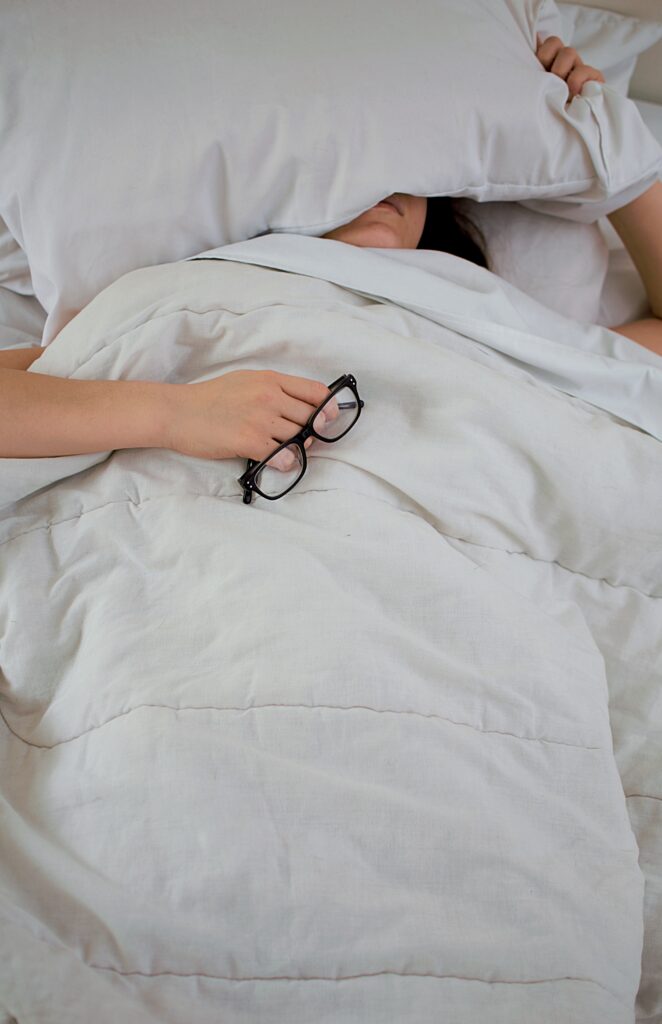Little Things You Can Do To Improve Your Sleep

We all suffer from bad sleep, sometimes. Tossing and turning all night, and then if lucky, getting an hours worth of shut-eye. In most cases, if there isn’t an underlying health issue, you can adjust a few things and your sleep will be back right on track. Psych2Go shares with you a few key methods to improve the quality of your sleep.
1. Make up a sleep schedule.
Train yourself to go to sleep and wake up at the same time every day. The best way to obtain this goal is to remain consistent by gradually easing yourself into the schedule. When you first start, work in fifteen minute increments. Get used to sleeping at the same time for a couple of days, and when you feel that you have established a steady time, deduct fifteen minutes until you feel that you are finally comfortable with a certain time.

2. Exercise regularly.
According to the National Sleep Foundation, exercise done in moderation, at least three or four times a week is highly beneficial to the improvement of your sleep pattern. Exercise will put you into a positively chirpier mood, and it is also said to help with decreasing stress levels. A study was done to observe the sleep satisfaction of people who exercised versus those who were not physically active. A larger percentage of regular exercisers reported to sleeping well without interruptions throughout the night. One of the best times to exercise is during the late afternoon. Physical activity creates an increase in body temperature, and as you cool down, chemicals and hormones are released that cause you to feel sleepy.
3. Make sure your bedding is comfortable.
To fully reap the benefits of a qualitative sleep, you need to make sure that you are comfortable with your bedding. A good pillow is an essential tool in sleeping. To test whether your pillow is still healthy, conduct this simple test: Lay you pillow on a flat surface and fold it in half. Should it bounce back to its former horizontal position, it is still healthy. If it maintains the half-form, then you need to replace it. If a pillow is unhealthy, it means that it lacks the support that is meant to be provided for your spinal cord and your neck.

4. Avoid blue light before you go to bed.
Scientific research has revealed that the light emitted from our devices (eg. laptops, cellphones) has a higher concentration of artificial light than of natural light. Blue light directly affects the levels of a sleep inducing hormone (melatonin), which will inversely affect the body’s natural clock, known as the circadian rhythm.
5. Stay away from caffeinated products.
Caffeine occurs naturally in such plants as the coffee bean, cocoa and tea – among others. It is a stimulant, and as a result it, it causes an increase in the production of adrenaline in the bloodstream. Caffeine takes several hours to exit the bloodstream, and consuming it late in the day can keep you up late into the night, or negatively impact the overall quality of your sleep.

6. Create a winding down routine.
Creating a standard routine that you repeat every night can be of benefit. When you get accustomed to doing the same thing over and over your body will fall into that routine and know when you anticipate sleeping. For example, reading can be a great way to wind down.
7. Try journaling before bed.
At least fifteen minutes before you plan to sleep, write about a positive aspect of your life. Whether it be a recent experience, or something that happened a long time ago, it can clear your mind and be a way to vent out your emotions. Even try keeping a gratitude journal! It increases your appreciation of things that we happen to take advantage of in life and sometimes overlook.

8. Clear your mind.
Clearing your mind can be helpful to induce sleep. Free your mind of all the negativity and stress in your life. Try and remain calm and peaceful.
Trying the traditional counting sheep method may also be the way to go. If that doesn’t work, you can try thinking of happy moments in your life until they lull you to sleep.




Responses